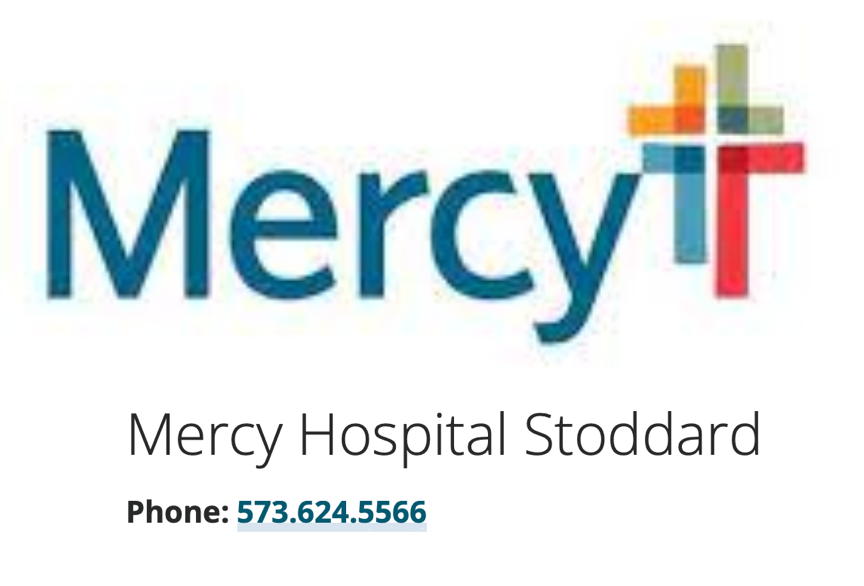
Mercy Southeast Patients Better Connected with New Electronic Health Record System
Patients of Mercy Southeast now have a single, comprehensive electronic health record to provide more coordinated care. All Mercy caregivers will have access to the new Epic system, which gives patients 24/7 access to their health records through the MyMercy patient portal and MyMercy+ app, to online scheduling through mercy.net and virtual care options.
On Oct. 6, Mercy Hospital Southeast, its clinics and all Mercy services and locations in the Cape Girardeau area transitioned to Epic, software designed to provide high-quality, personalized results for both patients and Mercy co-workers. This state-of-the-art system provides one patient health record available to all Mercy health care providers at all Mercy locations. The transition to Epic includes the Mercy Computing Mobile Platform, which gives key caregivers mobile capability.
The changeover fully integrates Mercy Southeast with the rest of the Mercy health system across Missouri, Kansas, Oklahoma and Arkansas, with the exception of Mercy Stoddard, which will transition to Epic’s electronic health record in summer 2025.
“Completing this project is an important, significant investment in the future of health care in Southeast Missouri,” said Eric Ammons, regional president. “Mercy has the most comprehensive electronic health data over time, which is a tremendous benefit to our patients. That depth of data is vital to our physicians, nurses and other caregivers, who can use it to provide proactive, predictive and personalized care for our patients.”
Epic is just one piece of Mercy’s $45 million, multi-year IT investment in adding new technology and tools to assist Mercy’s health care team in combining the newest medical technology with exceptional care across the Southeast Missouri community. Those advancements include numerous virtual care options, digital platforms and convenient access to health care when patients need it.
“Transitioning Mercy Southeast to a new electronic health record was a massive undertaking,” Ammons said. “Over the last year, our Mercy Southeast co-workers, physicians and advanced practice providers spent countless hours ensuring we were ready to make this transition smoothly. With co-workers across Mercy coming to Southeast Missouri to work alongside us, we successfully completed this extremely complex transition. I couldn’t be more proud of the effort of our Mercy Southeast team to help us fulfill our promise to improve access and provide quality care right here where it’s needed.”
All Mercy Southeast services and locations can now be found in one online location: mercy.net, a user-friendly online experience for finding services, doctors, locations and online scheduling throughout Southeast Missouri and the Mercy health system.
Patients will also find advantages of the new MyMercy+, including a free, easy-to-use app that allows anyone – not just Mercy patients – to manage their health online via phone or tablet. Benefits include:
- Viewing future health summaries
- Tracking and reviewing test results
- Messaging care teams
- Access to Mercy Now to find and schedule the most appropriate type of care 24/7
- Requesting prescription refills
- Reviewing and paying bills
- Requesting estimates or financial assistance for care
- Linking health accounts from other health systems
- Real-time alerts for updates about care and new features
- Connecting seamlessly to Wi-Fi to take advantage of all MyMercy+ features
MyMercy+ is available for free download from the Apple Store and Google Play Store.
Mercy, one of the 20 largest U.S. health systems and named the top large system in the U.S. for excellent patient experience by NRC Health, serves millions annually with nationally recognized care and one of the nation’s largest and highest performing Accountable Care Organizations in quality and cost. Mercy is a highly integrated, multi-state health care system including more than 50 acute care and specialty (heart, children’s, orthopedic and rehab) hospitals, convenient and urgent care locations, imaging centers and pharmacies. Mercy has over 900 physician practice locations and outpatient facilities, more than 4,500 physicians and advanced practitioners and 50,000 co-workers serving patients and families across Arkansas, Kansas, Missouri and Oklahoma. Mercy also has clinics, outpatient services and outreach ministries in Arkansas, Louisiana, Mississippi and Texas. In fiscal year 2023 alone, Mercy provided more than half a billion dollars of free care and other community benefits, including traditional charity care and unreimbursed Medicaid.
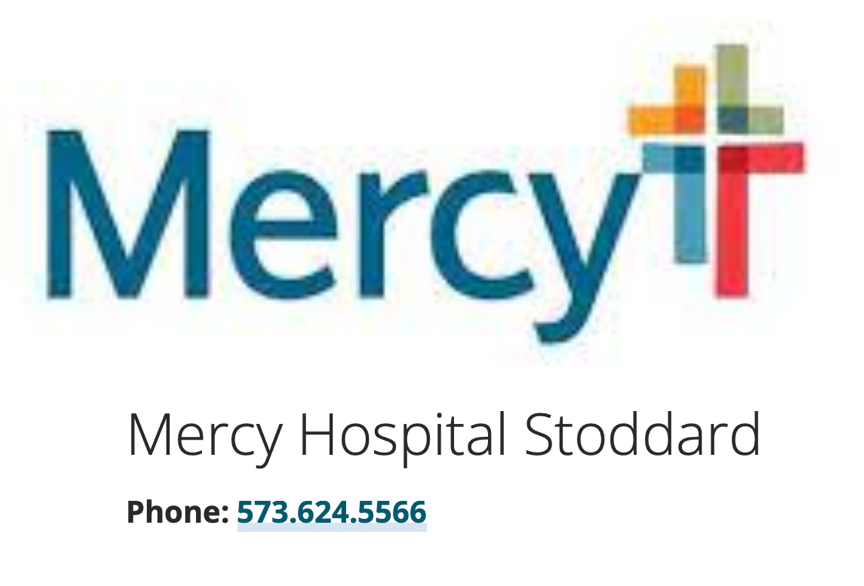
Anthem should join Mercy in putting patients first
By Steve Mackin
At Mercy, we always advocate for our patients and our co-workers. That is our guiding principle for everything we do. All our work is focused on providing the best patient care.
After nearly a year of discussion and negotiation with Anthem Blue Cross Blue Shield, Mercy had to provide a written notice to end our provider contracts with Anthem in the state of Missouri as of Jan. 1, 2025, due to our 120-day notice requirements. While our dispute with Anthem over these contracts is in part a business dispute, there are principally two key elements of the patient care journey we are seeking to improve: reducing unnecessary red tape to make access to care easier for patients and improving collaboration to create better value for the communities we serve.
Reducing Red Tape
Anthem unfortunately employs a variety of practices that bind patients in red tape. Patients and their care providers must often navigate a series of challenges before Anthem will authorize care. These delays disrupt patient care and, in some cases, can create critical situations.
Anthem’s complex processes also create difficulties for patients after they receive care. For example, we’re required to notify Anthem if one of its members is admitted to one of our emergency departments within 48 hours of admission. If we don’t, Anthem won’t pay for the care. Emergency care, by definition, is unplanned. Not every patient rushed into our emergency departments has their insurance card handy, and the law requires hospitals to provide emergency services before inquiring about insurance. These rules only serve to shift responsibility for payment from Anthem to its patients or to be absorbed by health systems.
As one of our region’s largest employers, we’re proud to offer our employees health insurance benefits. In fact, Mercy pays directly for the care provided to our co-workers and their families—nearly 70,000 people. Anthem has been the administrator for our self-insured plan for nearly a decade. Unfortunately, we have heard loud and clear from our co-workers about their poor experience with Anthem as patients. Because of the negative impacts of Anthem’s policies and practices on our co-workers and their families, we chose to move to a new plan administrator for 2025.
Today, Anthem’s policies and unpredictable enforcement create unnecessary challenges for doctors and cause patients additional worry during some of the most trying experiences of their lives.
Collaborating to Create Value
Anthem also fails our patients—its members—with its lackluster and outdated approach to partnering with health systems like Mercy. Anthem intensely focuses on the price per service. We are advocating for a proactive approach to care that focuses on quality and keeping patients healthy and out of the hospital, as opposed to one that mostly offers sick care. This paradigm shift would drive greater value for patients and employers by creating the opportunity for better outcomes at lower costs.
This is why Mercy has invested so heavily in primary care, virtual care and innovative options that allow patients to receive support without having to come to a hospital. As we advance our care delivery model, Mercy needs collaborative relationships with insurers that put patients first. We seek insurers who recognize that the total cost of care is not just about individual procedural rates, but also the efficient delivery of high-quality care and the ease of access we provide to patients. As a result of this approach, Mercy is the lowest-cost health system in Missouri by a significant amount. In the St. Louis region, Mercy has the lowest commercial pricing by 21% according to the NASHP Hospital Cost Tool.
As a nonprofit health system, Mercy provided more than half a billion dollars in free care in fiscal year 2023 and over $377 million of that care is in Missouri (most recently available data). This free care includes traditional charity care, unreimbursed Medicaid and other community benefits. Mercy’s operating margin for fiscal year 2022 was -0.2% and 0.1% for fiscal year 2023.
Meanwhile, Elevance Health, the corporate parent of Anthem, reported a 24% increase in profits year-over-year for the quarter ended June 30, 2024—a net income of $2.3 billion for the quarter. They also used a portion of their profit to purchase nearly a million shares of their own stock at an average price of $524 a share—dollars that could have been spent helping patients and reducing the cost to employers.
That’s why we’re standing up and asking for changes to the way Anthem does business on behalf of 500,000 Missourians, who are covered by a number of Anthem insurance products and chose Mercy as their care provider.
Our current contract with Anthem does not meet the needs of our patients or co-workers. We’ve tried for a long time to negotiate with Anthem in good faith. We’re ready to get this done today, but we need Anthem to be responsive. We need them to do what’s in the best interest of the people we jointly serve, in the best interest of employers and in the best interest of the state of Missouri.
More information can be found at mercy.net/anthem.
Steve Mackin is president and CEO of Mercy.
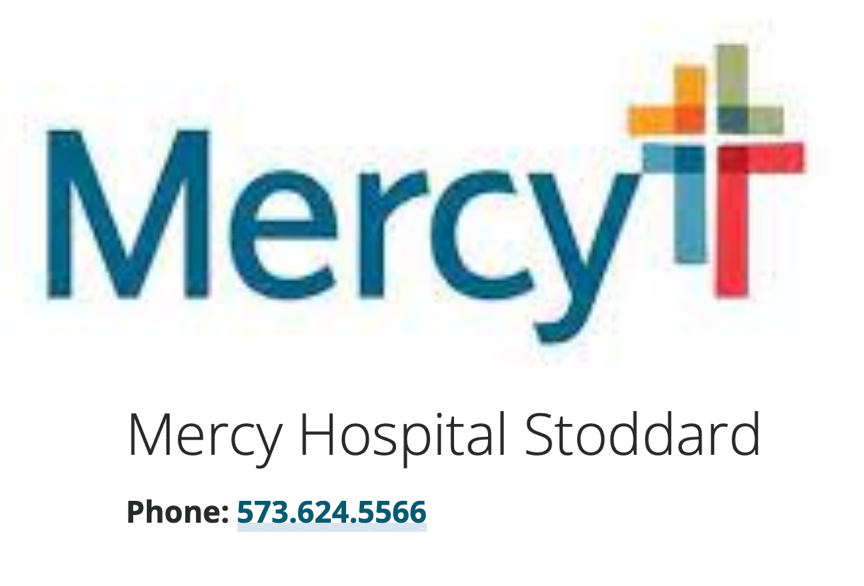
Patients experiencing orthopedic injuries can be seen faster with Mercy Southeast’s newest walk-in service.
Orthopedic walk-in care is a specialized service of Mercy Clinic Orthopedics and Sports Medicine – 650 S Mount Auburn in Suite 101 in Cape Girardeau. The new service provides immediate diagnoses and treatment for new or acute musculoskeletal issues that occurred within the last two weeks, such as:
-
New, sudden injuries
-
Bone fractures
-
Muscle strains
-
Joint sprains
-
Swollen joints
-
New injuries in need of a diagnosis
Patients ages 10 and older will benefit from receiving immediate attention without having to wait for an appointment, significantly improving injury recovery times. Patients can also visit the new clinic without a referral from their primary care physician.
Mercy’s board-certified orthopedic and sports medicine specialists have expertise in diagnosing and treating a wide range of orthopedic injuries. A team of doctors, nurse practitioners and certified athletic trainers will serve patients in the new clinic.
"We're very excited about our new walk-in orthopedic clinic option,” Andrew Lawrence, MD, Mercy sports medicine specialist, said. “If you or a loved one gets laid up by an unexpected injury or trauma, you won't have to wait to get started on your road to recovery. Our team of orthopedic and sports medicine specialists will have you back to the activities you enjoy with the expertise and compassion you have come to know and expect from Mercy Southeast."
Mercy Orthopedic Walk-in Care is open 8 a.m. to 3:30 p.m. Monday through Friday. Learn more by calling 573.519.4960 or visiting www.sehealth.org/services/orthopedics
Mercy, one of the 20 largest U.S. health systems and named the top large system in the U.S. for excellent patient experience by NRC Health, serves millions annually with nationally recognized care and one of the nation’s largest and highest performing Accountable Care Organizations in quality and cost. Mercy is a highly integrated, multi-state health care system including more than 50 acute care and specialty (heart, children’s, orthopedic and rehab) hospitals, convenient and urgent care locations, imaging centers and pharmacies. Mercy has over 900 physician practice locations and outpatient facilities, more than 4,500 physicians and advanced practitioners and 50,000 co-workers serving patients and families across Arkansas, Kansas, Missouri and Oklahoma. Mercy also has clinics, outpatient services and outreach ministries in Arkansas, Louisiana, Mississippi and Texas. In fiscal year 2023 alone, Mercy provided more than half a billion dollars of free care and other community benefits, including traditional charity care and unreimbursed Medicaid.
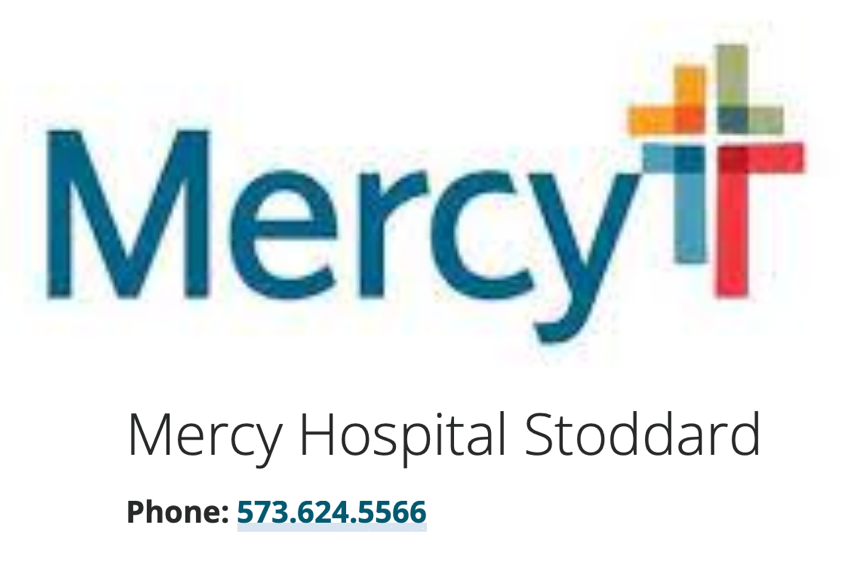
As advancements in targeted therapies accelerate, Mercy is at the forefront, leading the charge in transforming patient care. To build on its foundation, Mercy recently held its first Precision Medicine Summit, a pioneering event that brought together medical professionals and experts to discuss the future of personalized health care.
The summit was spearheaded by Mercy’s Director of Precision Medicine Dr. Gautum Agarwal, whose leadership and vision were instrumental in making the event a success. After the significant participation at this year’s Summit, plans are already in place to expand the summit into a larger annual conference for medical professionals across the county, aiming to foster further collaboration and innovation in this rapidly evolving field.
“The future of medicine lies in our ability to tailor treatments to the unique genetic makeup of each patient,” Dr. Agarwal said. “At Mercy, we’re committed to leading the way in precision medicine, providing cutting-edge care that improves outcomes while also transforming lives.”
One keynote speaker, Dr. Aadel Chaudhuri, co-director of Mayo Clinic’s Cancer Individualized Medicine Office, said Mercy is leading the way when it comes to using technology in medicine.
“Mercy has already adopted many of these technologies that are just now being developed and validated,” Chaudhuri said. “For example, Mercy is already using large language model AI to generate summaries of notes to facilitate care from the ER to admission onto the floor, and that’s pretty ahead of the game.”
Mercy is also building a dynamic, multidisciplinary precision medicine team of physicians and advanced practice providers, all dedicated to delivering exceptional care with a commitment to improving patient care and outcomes.
“The work Mercy is doing is pretty amazing, working with several large organizations to charter the frontier of health care and computation,” said keynote speaker Dr. Gaurav Singal, physician, computer scientist and member of the faculty and board of advisors for Harvard Medical School.
By utilizing personalized medical testing and services, physicians are better equipped to provide targeted, effective treatments tailored to the unique needs of each patient. As a leader in precision medicine, Mercy remains dedicated to expanding its services and continuing to offer patients the most advanced and personalized care available.
To learn more about the variety of proactive services Mercy offers for patients, visit mercy.net/PrecisionMed.
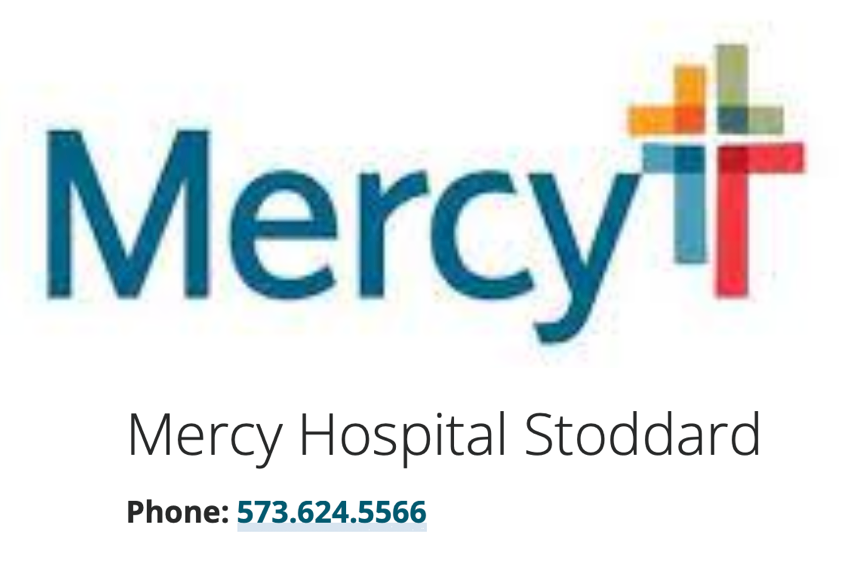
After months of negotiation with Anthem Blue Cross Blue Shield (BCBS), Mercy has provided written notice to end its contracts with Anthem in the state of Missouri. These contracts include all commercial, Medicare Advantage, Affordable Care Act (ACA) marketplace, managed Medicaid plans (Healthy Blue) and HealthLink (which falls under the Anthem BCBS umbrella).
“Our focus remains on safeguarding our patients and ensuring they receive the low-cost, high- quality care they deserve with insurance coverage that provides the greatest amount of protection for their health,” said Dave Thompson, Mercy’s senior vice president of population health and president of contracted revenue. “We know this news will be concerning for hundreds of thousands of Mercy patients with Anthem BCBS. We will continue to negotiate in good faith with Anthem in hopes of avoiding any disruption to our patients at the end of the year – particularly those patients in need of prolonged, coordinated care. However, patients and employers considering which health plans to purchase for 2025 should consider whether Mercy, the largest health system in the state, will be in the plan they purchase.”
Mercy hopes to remove much of the red tape that makes it increasingly difficult for patients to navigate Anthem’s system and creates a burden and barrier for patients to receive care when it’s medically necessary.
“These technicalities disrupt patient care and, in some cases, can be life threatening. They are administrative tasks dictated and mandated by Anthem, and they are a barrier to timely, appropriate patient care and can shift the cost of health care away from the insurance provider to those less able to afford it – our patients,” Thompson said. “Our patients have enough to worry about as they are often in the middle of a personal health care crisis. They shouldn’t have to worry about whether their insurance company will approve their coverage. They should be able to solely focus on their health and the health of their family members.”
While Mercy and other organizations providing patient care face the burden of rising costs, managed care companies are reaping enormous profits. In June 2024, Elevance Health, the corporate name for Anthem, reported a 24.12% increase in its year-over-year net income to $2.3 billion and a 24.29% increase in its year-over-year net profit margin. In stark contrast, Mercy’s average cost per inpatient stay for commercially insured patients is 27% below the average for all hospitals in the state and outpatient care for that same population is 16% below the average.
As a nonprofit health system, Mercy provided more than half a billion dollars in free care in the most recently available year, fiscal year 2023. This free care includes traditional charity care, unreimbursed Medicaid and other community benefits.
“The cost of providing actual care for patients has risen significantly due to inflation, but Anthem has not kept pace with those rising costs when it comes to reimbursing us for the care we provide to our communities,” said Thompson. “It’s unreasonable for the insurer to increase its premiums to patients and employers and increase its profits while expecting those of us providing health care directly to patients daily to bear the brunt of the higher cost for providing that care.”
Mercy will remain in network for medical services with Anthem through the end of the year and will move out of network with Anthem on Jan. 1, 2025, unless a new agreement is reached. This notice does not impact Mercy retail pharmacy services which will allow Mercy Pharmacy’s retail locations to continue serving Anthem patients with their current in-network coverage.
“We’re innovating to improve access to care while achieving top performance in quality and safety. We are also keeping our costs significantly lower than other health systems,” Thompson added. “Managed care companies can and should support this work to give patients access to medically necessary care and incentivize those who provide effective care and reduce the cost burden to the health care system. We want specific provisions from Anthem to support this work and correct issues our patients have with denials and red tape.”
Mercy encourages patients to share their concerns with Anthem by calling the number on the back of their health insurance cards or by calling Anthem at 1-800-331-1476 to make their voices heard.
Mercy, one of the 20 largest U.S. health systems and named the top large system in the U.S. for excellent patient experience by NRC Health, serves millions annually with nationally recognized care and one of the nation’s largest and highest performing Accountable Care Organizations in quality and cost. Mercy is a highly integrated, multi-state health care system including more than 50 acute care and specialty (heart, children’s, orthopedic and rehab)
hospitals, convenient and urgent care locations, imaging centers and pharmacies. Mercy has over 900 physician practice locations and outpatient facilities, more than 4,500 physicians and advanced practitioners and 50,000 co-workers serving patients and families across Arkansas, Kansas, Missouri and Oklahoma. Mercy also has clinics, outpatient services and outreach ministries in Arkansas, Louisiana, Mississippi and Texas. In fiscal year 2023 alone, Mercy provided more than half a billion dollars of free care and other community benefits, including traditional charity care and unreimbursed Medicaid.

